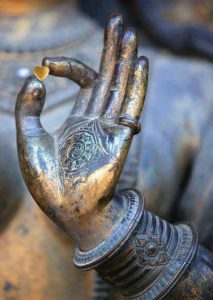So much for my resolution to stop lobbing f-bombs.
This piece is for Phyllis Ring, whose superpower is kindness. She’s crazy good at it.
There is a point in my husband’s memorial service I think about often.
I’ve just arrived at the podium to give his eulogy. My feet — I can’t figure out where to put my feet. They keep bumping against the fing thing, as if whatever my brain is telling me to do with them is being overridden. I don’t know how they actually got me up there anyway. Because it felt more like gliding than like walking.
But I feel calm. That’s the good news, that I’m calm enough and centered enough to get this done. The eulogy is something I’m proud of and that is also reassuring. Just outside my peripheral line of sight, glimpse our minister, as always she’s wonderfully kind, in this gesture of staying close to me in case I get overwhelmed and need to turn the service over to her. As she’s always reminded me to do, I quickly check that my pages are numbered correctly, and they are. So I look up to begin.
It is standing room only.
I don’t know how long I stare out at the crowd trying to comprehend the magnitude of people filling the space. One beat, two beats? Three? Suddenly I’m reminded by my lungs that oxygen is not a gentle suggestion.
It’s literally breathtaking.
I’d been worried that we had chosen the wrong venue and that this “chapel” would be too grand and cavernous for the warm tribute I wanted for him. A few folks had reached out to me in the week before to let me know they regrettably would not be able to attend this memorial, understandable since it was the last week before the start of the school year and a busy travel week. Had I been preparing myself for an echo in here?
I scan back through the row upon row of faces trying to take it all in, landing ironically on the EXIT sign above the back doors as my centering point. It has to be far enough back to keep my delivery big enough. So everyone can hear. It occurs to me that if everyone who’d wanted to be there but couldn’t, had actually attended we would have exceeded the fire limit.
And then automatically, even though I am thoroughly touched to the deepest parts of my soul by this show of kindness, this bearing witness, even though I understand that the gliding sensation was really a manifestation of how truly supported I am by this community, even though I am so resonant with gratitude I am vibrating — I can’t help what I do next. Like a burrowing mole-like animal I dig down and down through my memory and draw from a deeply embedded chapter almost twenty-five years old. My hospice volunteer training. As I stand there trying to soak up every molecule of the palpable love present for me and my family, I also count forward by months — September22-October22-November22 — and realize that at three months out from this service we’ll be near Thanksgiving. Four months lands an almost direct hit on Christmas.
As this sinks in, I have one last thought before I begin.
Shit.
